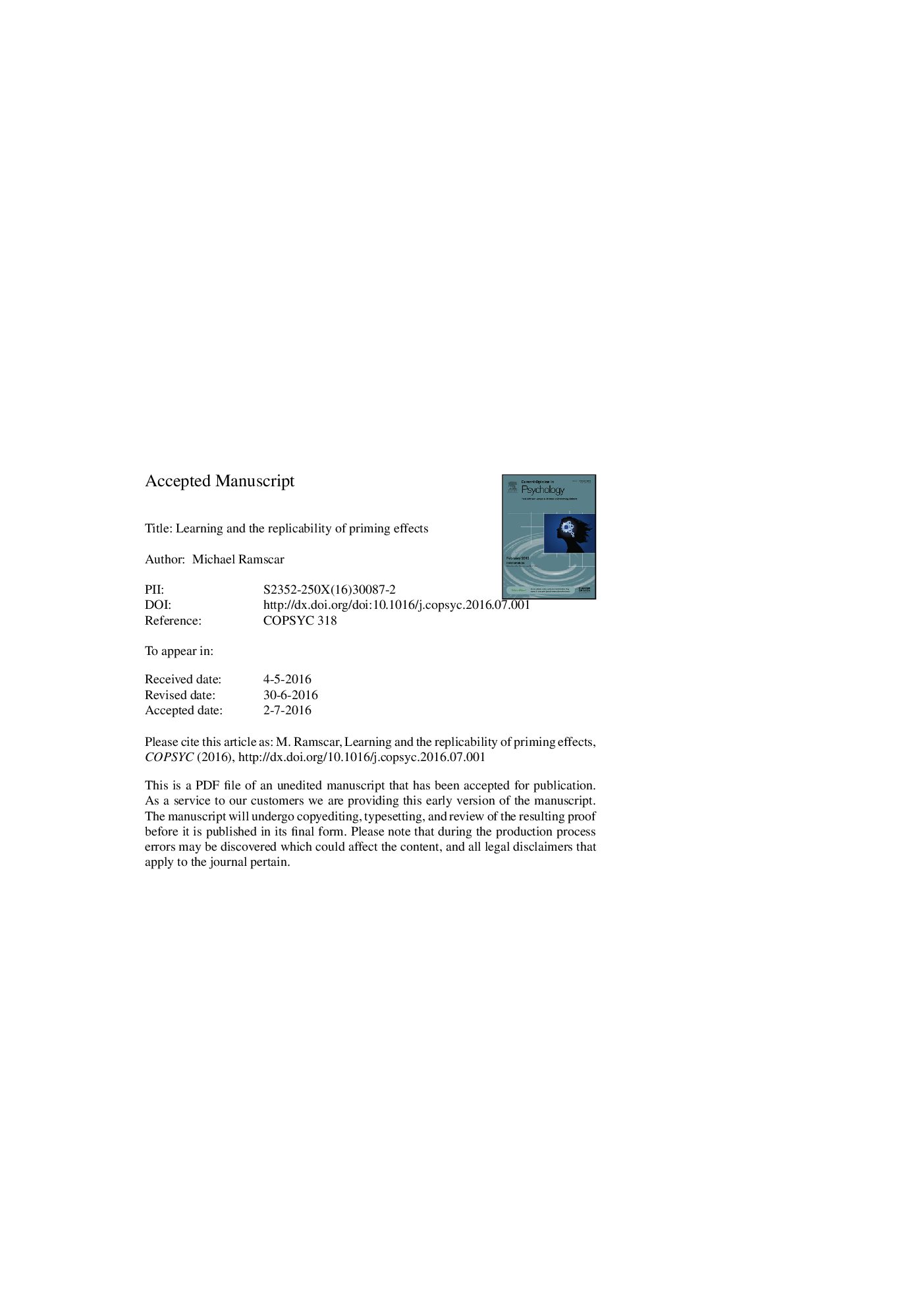| Article ID | Journal | Published Year | Pages | File Type |
|---|---|---|---|---|
| 7240060 | Current Opinion in Psychology | 2016 | 12 Pages |
Abstract
The way individuals behave usually depends on the information available to them. This raises two questions: Where does information come from? And, what does it mean for it to 'be available'? With regards the latter question, while it is clear that stimuli can 'prime' information - allowing its availability to be manipulated - the limits of priming and the replicability of priming effects have become subject to controversy. Beginning with the first question - learning, and the learned basis of priming - this review describes why, in the limit, all direct replications of priming studies involving learned information can be expected to fail, and why this means that priming researchers should focus on developing formal accounts of these phenomena, rather than studying priming effects themselves.
Related Topics
Social Sciences and Humanities
Psychology
Applied Psychology
Authors
Michael Ramscar,
